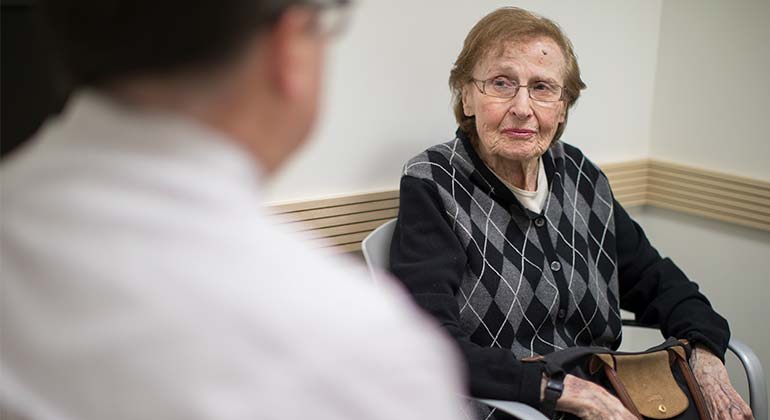It is estimated that by 2030, there will be over 72 million people in the United States over the age of 65. This population is growing rapidly and with it the demand for geriatric psychiatry services. Also, geriatric psychiatry is a type of psychiatry that focuses on diagnosing, treating, and preventing mental health disorders in older adults. Also, in this article, we will discuss everything you need to know about geriatric psychiatry!
Contents
- 1 What Is Geriatric Psychiatry?
- 1.1 Common Conditions That Geriatric Psychiatry Can Treat
- 1.2 How Does Geriatric Psychiatry Help Patients and Caregivers?
- 1.3 How Is Geriatric Psychiatry Different From Other Types of Psychiatry?
- 1.4 Benefits Of Geriatric Psychiatry
- 1.5 Negative Impact Of Geriatric Psychiatry
- 1.6 How Can I Find A Geriatric Psychiatrist?
- 1.7 What Initiates The Need For Geriatric Psychiatry?
- 1.8 Helping Someone With Geriatric Psychiatry
- 2 Conclusion
- 3 A Word From Therapy Mantra
What Is Geriatric Psychiatry?

Geriatric psychiatry is a branch of psychiatry that specializes in the care of elderly patients. This includes diagnosing and treating mental health conditions, as well as providing support to caregivers. Also, geriatric psychiatrists work with other doctors, like neurologists and internists.
Common Conditions That Geriatric Psychiatry Can Treat
Geriatric psychiatry can treat a variety of mental health conditions, including:
Depression
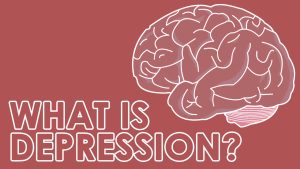
Depression is the most common mental health problem among older adults and occurs in about 20% of those over 65 years of age. Symptoms include feeling sad, hopeless, worthless, pessimistic; decreased interest in activities formerly enjoyed; changes in appetite and weight; difficulty concentrating; insomnia or oversleeping; restlessness or slowed movements.
Dementia
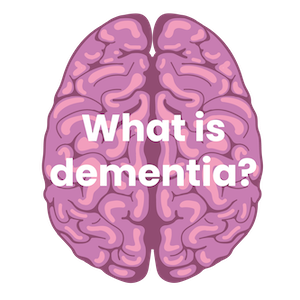
Dementia is a condition that results in memory loss and impairment of other cognitive functions. It affects about 50% of people over 85 years of age. Early symptoms include difficulty remembering recent events, names, or faces; decreased ability to plan or make decisions; changes in mood or behavior; confusion about time, place, or personal identity.
Anxiety disorders
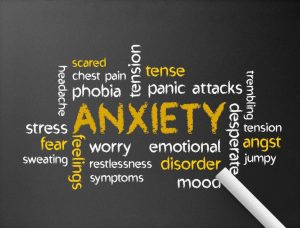
Anxiety disorders are the most common type of psychiatric disorder among older adults. Moreover, they include generalized anxiety disorder, panic disorder, social phobia, and posttraumatic stress disorder. Symptoms can include excessive worry, fearfulness, trembling or shaking; chest pain or discomfort; shortness of breath; dizziness or lightheadedness; feelings of unreality; chills or hot flashes.
Alzheimer’s disease
Alzheimer’s disease is a progressive form of dementia that accounts for 60-70% of cases of dementia in older adults. Symptoms include gradual memory loss, confusion, disorientation, changes in mood and behavior, difficulty speaking and swallowing.
Parkinson’s disease
Parkinson’s disease is a chronic neurological disorder that affects movement. It occurs in about 0.02-0.03% of the population over 65 years old and increases with age. Early symptoms include tremors, muscle stiffness, slowed movements, poor balance, and coordination. As the disease progresses there may be changes in thinking and reasoning ability, dementia, and hallucinations.
Bipolar disorder
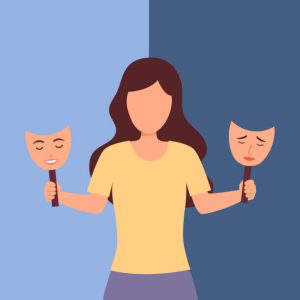
Bipolar disorder is a mental illness that causes extreme mood swings, from manic highs to depressive lows. Also, it affects about 0.25% of adults over 65 years old. Symptoms include periods of high energy, increased activity, decreased need for sleep; excessive talking or racing thoughts; distractibility; impulsiveness; recklessness; feelings of euphoria or happiness. Other symptoms can include feelings of sadness, emptiness, hopelessness, guilt, worthlessness; problems with concentration and memory; changes in appetite and weight; insomnia or oversleeping; fatigue or loss of energy; thoughts of suicide.
Schizophrenia
Schizophrenia is a chronic mental illness that affects about 0.25% of adults over 65 years old. However, it is characterized by hallucinations, delusions, disorganized thinking and speech, social withdrawal, and emotional flatness. Symptoms can be severe enough to significantly impair daily functioning.
Suicide

Suicide is the tenth leading cause of death in the US overall, but it is the second leading cause of death among adults aged 65 or older. Older adults are at increased risk for suicide due to factors such as chronic illness, functional impairment, social isolation, depression, and dementia. Warning signs include talking about wanting to die or hurt oneself; expressing feelings of hopelessness or helplessness; increasing alcohol or drug abuse; withdrawing from friends and activities; abnormal mood swings.
If you notice any warning signs in an older adult, don’t hesitate to reach out for help.
How Does Geriatric Psychiatry Help Patients and Caregivers?
Geriatric psychiatry can help patients and caregivers in a number of ways:
Patients
- Diagnosing and treating mental health conditions: Geriatric psychiatrists can diagnose and treat mental health conditions in elderly patients. This can help them feel better mentally and improve their quality of life.
- Helping with medication management: Geriatric psychiatrists can help elderly patients manage their medications. This can help reduce the risk of side effects and interactions.
- Providing support and resources: Geriatric psychiatrists can provide support to elderly patients and their caregivers.
- Recommending lifestyle changes to improve the patient’s quality of life: Geriatric psychiatrists can recommend lifestyle changes to help elderly patients live healthier lives.
Caregivers

Helping to manage the patient’s condition: Caregivers may not always be able to provide the necessary care for an elderly patient with a mental health condition. Also, geriatric psychiatrists can help caregivers manage the patient’s condition.
- Providing support and resources: Geriatric psychiatrists can provide support to caregivers, including information on how to care for an elderly patient with a mental health condition.
- Helping to manage the patient’s medication: Geriatric psychiatrists can help caregivers manage the patient’s medications. This can help reduce the risk of side effects and interactions.
- Providing information about resources available to them: Geriatric psychiatrists can provide caregivers with information on resources available to them, such as support groups or counseling.
Finally, geriatric psychiatry is a branch of psychiatry that specializes in the care of elderly patients. This includes diagnosing and treating mental health conditions, as well as providing support to caregivers. Also, geriatric psychiatrists work with other doctors, like neurologists and internists.
How Is Geriatric Psychiatry Different From Other Types of Psychiatry?
Gero-psychiatrists work with people who are old. They often focus on more than one thing that is wrong with the patients. They also often provide support to caregivers. Geriatric psychiatrists may also work with people who have a chronic physical illnesses.
Some things that make geriatric psychiatry different from other types of psychiatry are:
- The focus on multiple conditions: In geriatric psychiatry, doctors often focus on more than one mental health condition in their patients. This can include conditions like dementia and depression.
- The focus on caregivers: Geriatric psychiatrists often provide support to caregivers, which is not always the case in other types of psychiatry.
- The focus on chronic physical illnesses: Some geriatric psychiatrists also work with patients who have a chronic physical illnesses, such as Parkinson’s disease or Alzheimer’s disease.
Benefits Of Geriatric Psychiatry

There are many benefits to geriatric psychiatry. Some of these benefits include improved mental health, decreased anxiety and depression, and a better quality of life.
- Geriatric psychiatry can also help prevent or delay the onset of dementia.
- For elderly patients with mental illness, early diagnosis and treatment are keys. Left untreated, mental illness can lead to other health problems, social isolation, and even suicide.
- Geriatric psychiatrists are specially trained to deal with the unique challenges that come with treating older adults. They understand the physical changes that occur as people age, and they know how to best address the needs of their patients.
- Geriatric psychiatry is not just for seniors with diagnosed mental illnesses. It can also be helpful for older adults who are experiencing normal changes associated with aging, such as memory loss or difficulty coping with stress.
Therefore, if you or a loved one is experiencing problems related to aging, don’t hesitate to seek help from a geriatric psychiatrist. Also, the benefits of treatment are well worth the effort.
Negative Impact Of Geriatric Psychiatry

There are some potentially negative impacts of geriatric psychiatry.
- One such impact is that it may be difficult to find a psychiatrist who specializes in geriatrics.
- Another potential downside is that treatment can be expensive. Geriatric psychiatrists are different from other types of psychiatrists. They usually need more time and money, which is where the higher costs come in.
- Geriatric psychiatry can also be emotionally taxing for caregivers. It can be hard to see a loved one struggle with mental illness. Also, caregivers should take care to manage their own stress levels and seek support if needed.
How Can I Find A Geriatric Psychiatrist?
If you are looking for a geriatric psychiatrist, your best bet is to ask your family doctor or neurologist for referrals. You can also check with the American Psychiatric Association or the American Academy of Geriatric Psychiatry.
It is important to note that not all psychiatrists specialize in geriatrics. So, it is important to ask about a doctor’s experience treating elderly patients before making an appointment.
What Initiates The Need For Geriatric Psychiatry?
- Older age: Geriatric patients are more likely to experience psychiatric problems than younger patients.
- Living alone or being isolated: This increases the risk of developing depression or dementia.
- Having a chronic physical illness: Patients with chronic illnesses such as heart disease, stroke, and cancer are at increased risk for mental health problems.
- Having a history of mental illness: People who have had a previous mental illness are at greater risk for another one later in life.
- Substance abuse: Alcohol and drug abuse can increase the likelihood of developing a mental health problem.
- Poor nutrition: Malnutrition can lead to deficiencies in vitamins and minerals that are essential for healthy brain function, which can contribute to psychiatric problems.
- Poor sleep: Insomnia or disturbed sleep can lead to fatigue, irritability, and anxiety.
- Social isolation: Limited social interaction can increase the risk of developing depression or dementia.
- Lack of meaningful activity: A lack of purpose in life can lead to boredom and apathy, which are associated with depression.
Helping Someone With Geriatric Psychiatry

If you are a caregiver for someone with geriatric psychiatry, there are some things you can do to help.
- First, be sure to manage your own stress levels. Caregiving can be very taxing, and it is important to take care of yourself.
- Secondly, make sure the person you are caring for gets enough exercise and social interaction.
- Thirdly, provide a supportive environment at home. This includes keeping the home tidy and organized and providing regular meals and snacks.
- Fourth, stay informed about the treatment plan and any changes in the patient’s condition.
- Fifth, seek support if needed.
Hence, there are many resources available for caregivers, including online support groups and local support groups.
Conclusion
If you’re interested in the fascinating field of geriatric psychiatry, then this blog post is for you. Geriatrics and psychiatric care are two fields that don’t often intersect. But as our population continues to age, it’s becoming more important to study how these fields interact. Also, this blog post has explored some interesting research on how both disciplines can be combined to help improve patient outcomes. Moreover, geriatric psychiatry is something that helps people who are old. There are also mental health disorders in the old. We will talk about geriatric psychiatry in this class before we talk about studies on how it can be used in older adults who have mental health disorders. Hence, geriatric psychiatry is important, and it might be hard to use with older adults who have PTSD or dementia-related depression.
A Word From Therapy Mantra
Your mental health — Your psychological, emotional, and social well-being — has an impact on every aspect of your life. Positive mental health essentially allows you to effectively deal with life’s everyday challenges.
At TherapyMantra, we have a team of therapists who provide affordable online therapy to assist you with issues such as depression, anxiety, stress, workplace Issues, addiction, relationship, OCD, LGBTQ, and PTSD. You can book a free therapy or download our free Android or iOS app.
